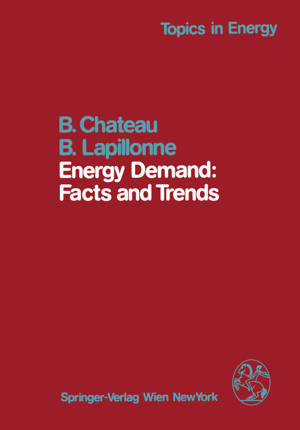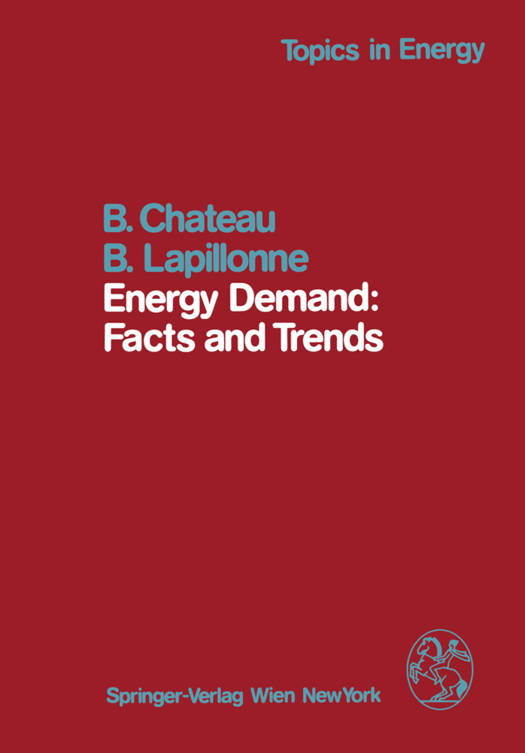
- Afhalen na 1 uur in een winkel met voorraad
- Gratis thuislevering in België vanaf € 30
- Ruim aanbod met 7 miljoen producten
- Afhalen na 1 uur in een winkel met voorraad
- Gratis thuislevering in België vanaf € 30
- Ruim aanbod met 7 miljoen producten
Zoeken
Energy Demand: Facts and Trends
A Comparative Analysis of Industrialized Countries
B Chateau, B Lapillonne
€ 139,95
+ 279 punten
Omschrijving
The fIrst oil crisis of 1973-74 and the questions it raised in the economic and social fIelds drew attention to energy issues. Industrial societies, accustomed for two decades or more to energy sufficiently easy to produce and cheap to consume that it was thought to be inexhaustible, began to question their energy future. The studies undertaken at that time, and since, on a national, regional, or world level were over-optimistic. The problem seemed simple enough to solve. On the one hand, a certain number of resources: coal, the abundance of which was discovered, or rather rediscovered oil, source of all the problems ... In fact, the problems seemed to come, if not from oil itself (an easy explanation), then from those who produced it without really owning it, and from those who owned it without really control- ling it natural gas, second only to oil and less compromised uranium, all of whose promises had not been kept, but whose resources were not in question solar energy, multiform and really inexhaustible thermonuclear fusion, and geothermal energy, etc. On the other hand, energy consumption, though excessive perhaps, was symbolic of progress, development, and increased well being. The originality of the energy policies set up since 1974 lies in the fact they no longer aimed to produce (or import) more, but to consume less. They sought, and still seek, what might be emphatically called the control of energy consump- tion, or rather the control of energy demand.
Specificaties
Betrokkenen
- Auteur(s):
- Uitgeverij:
Inhoud
- Aantal bladzijden:
- 280
- Taal:
- Engels
- Reeks:
Eigenschappen
- Productcode (EAN):
- 9783709186411
- Verschijningsdatum:
- 31/12/2011
- Uitvoering:
- Paperback
- Formaat:
- Trade paperback (VS)
- Afmetingen:
- 170 mm x 244 mm
- Gewicht:
- 480 g

Alleen bij Standaard Boekhandel
+ 279 punten op je klantenkaart van Standaard Boekhandel
Beoordelingen
We publiceren alleen reviews die voldoen aan de voorwaarden voor reviews. Bekijk onze voorwaarden voor reviews.








